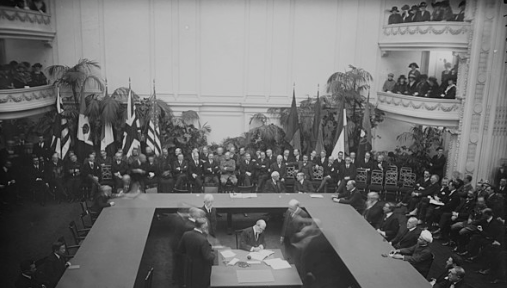Best High Quality Sustainable Fashion Education Programs

In an era marked by increasing environmental consciousness and a growing demand for sustainable practices, the fashion industry is undergoing a profound transformation. As sustainability takes center stage, education programs play a pivotal role in shaping the next generation of fashion professionals. This comprehensive exploration delves into the best high-quality sustainable fashion education programs globally, shedding light on their innovative approaches and commitment to fostering a more eco-conscious industry.
Setting the Stage: The Need for Sustainable Fashion Education
1.1 The Urgency of Sustainability in Fashion
The fashion industry’s environmental impact is undeniable, from resource-intensive production processes to the disposal of fast fashion garments. The pressing need for sustainability is examined, setting the stage for the transformative role of education programs in addressing these challenges.
1.2 Shifting Paradigms: The Rise of Sustainable Fashion Education
As consumer awareness grows, educational institutions are adapting to the paradigm shift in the fashion landscape. This section explores the evolution of sustainable fashion education and its significance in creating a more responsible and ethical industry.
Key Characteristics of High-Quality Sustainable Fashion Education Programs
2.1 Curriculum Innovation and Integration
The best programs distinguish themselves through cutting-edge curricula that seamlessly integrate sustainability into various aspects of fashion education. Case studies, practical experiences, and interdisciplinary approaches are examined to highlight the effectiveness of these programs.
2.2 Industry Collaboration and Partnerships
A hallmark of excellence is the collaboration between educational institutions and the fashion industry. By forging partnerships with sustainable fashion brands and professionals, programs provide students with real-world insights and opportunities. Notable examples and success stories are explored.
2.3 Ethical and Sustainable Design Principles
Central to these programs is the cultivation of ethical design practices. From materials sourcing to production techniques, high-quality sustainable fashion education programs instill a commitment to minimizing environmental impact and promoting fair labor practices.
Global Leaders in Sustainable Fashion Education
3.1 Parsons School of Design – New York, USA
A trailblazer in the field, Parsons is renowned for its forward-thinking curriculum and emphasis on sustainable design. Interviews with faculty, alumni success stories, and a detailed analysis of its program structure provide an in-depth understanding of its impact.
3.2 London College of Fashion – London, UK
Situated in the heart of the fashion capital, LCF is at the forefront of sustainable fashion education. This section explores its unique initiatives, global collaborations, and the role it plays in shaping the future leaders of the industry.
3.3 Copenhagen School of Design and Technology (KEA) – Copenhagen, Denmark
In the heart of Scandinavia, KEA stands out for its holistic approach to sustainability. Examining its commitment to circular fashion and the incorporation of Nordic design principles, this segment showcases how the program reflects regional values in a global context.
Innovations and Trends Shaping Sustainable Fashion Education
4.1 Virtual Reality (VR) and Augmented Reality (AR) Integration
As technology becomes inseparable from education, the integration of VR and AR in sustainable fashion programs is explored. This section delves into how these tools enhance learning experiences and foster creativity in sustainable design.
4.2 Global Experiential Learning Programs
Highlighting the importance of firsthand experience, this segment examines how global experiential learning programs immerse students in diverse cultures and sustainable practices. Case studies showcase the transformative impact of these initiatives.
4.3 Entrepreneurship and Business Skills Development
Beyond design, successful sustainable fashion professionals need entrepreneurial acumen. The incorporation of business skills into education programs is scrutinized, showcasing how graduates are equipped to drive change not only as designers but as leaders in the sustainable fashion ecosystem.
Challenges and Opportunities in Sustainable Fashion Education
5.1 Navigating Resource Constraints
Despite the growing demand, resource constraints pose a challenge to the expansion of sustainable fashion education. Strategies employed by institutions to overcome these hurdles are discussed, offering insights into the resilience and adaptability of these programs.
5.2 Bridging the Gap between Education and Industry Needs
The alignment of education with industry needs is crucial for the success of graduates. Interviews with industry experts, educators, and students provide a multifaceted perspective on how sustainable fashion education can evolve to meet the dynamic demands of the field.
Conclusion: Shaping a Sustainable Future
In conclusion, this extensive exploration underscores the pivotal role played by high-quality sustainable fashion education programs in shaping the future of the industry. From curriculum innovations to global collaborations, these programs serve as beacons of inspiration, nurturing a generation of professionals committed to creating a more sustainable and ethical fashion landscape. As the industry continues to evolve, the influence of these programs will undoubtedly be a driving force in redefining the standards of excellence in fashion education.



